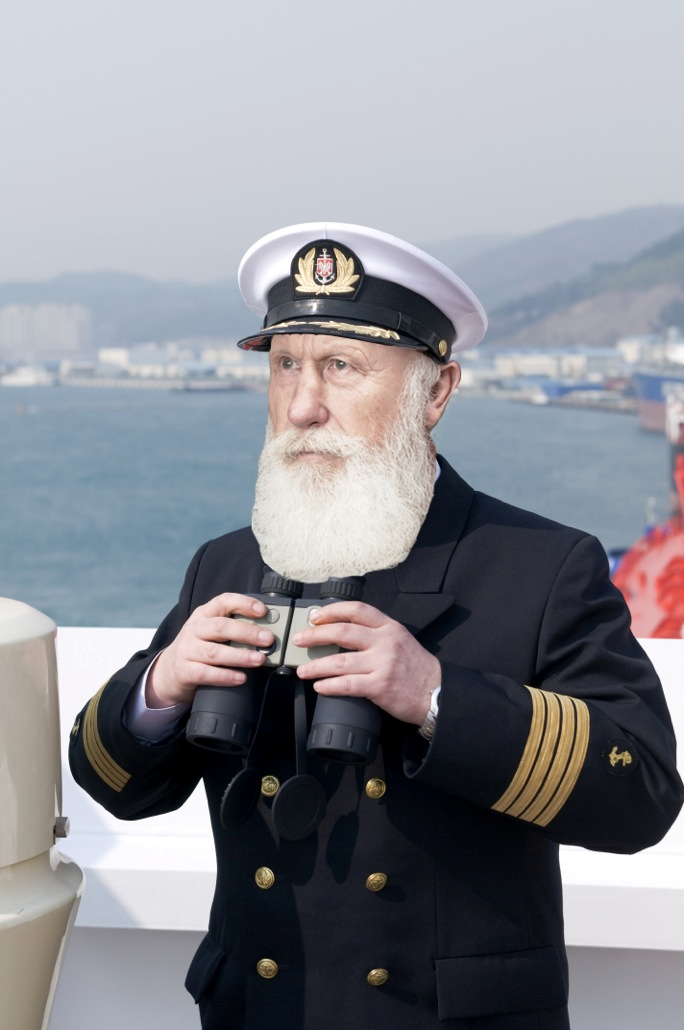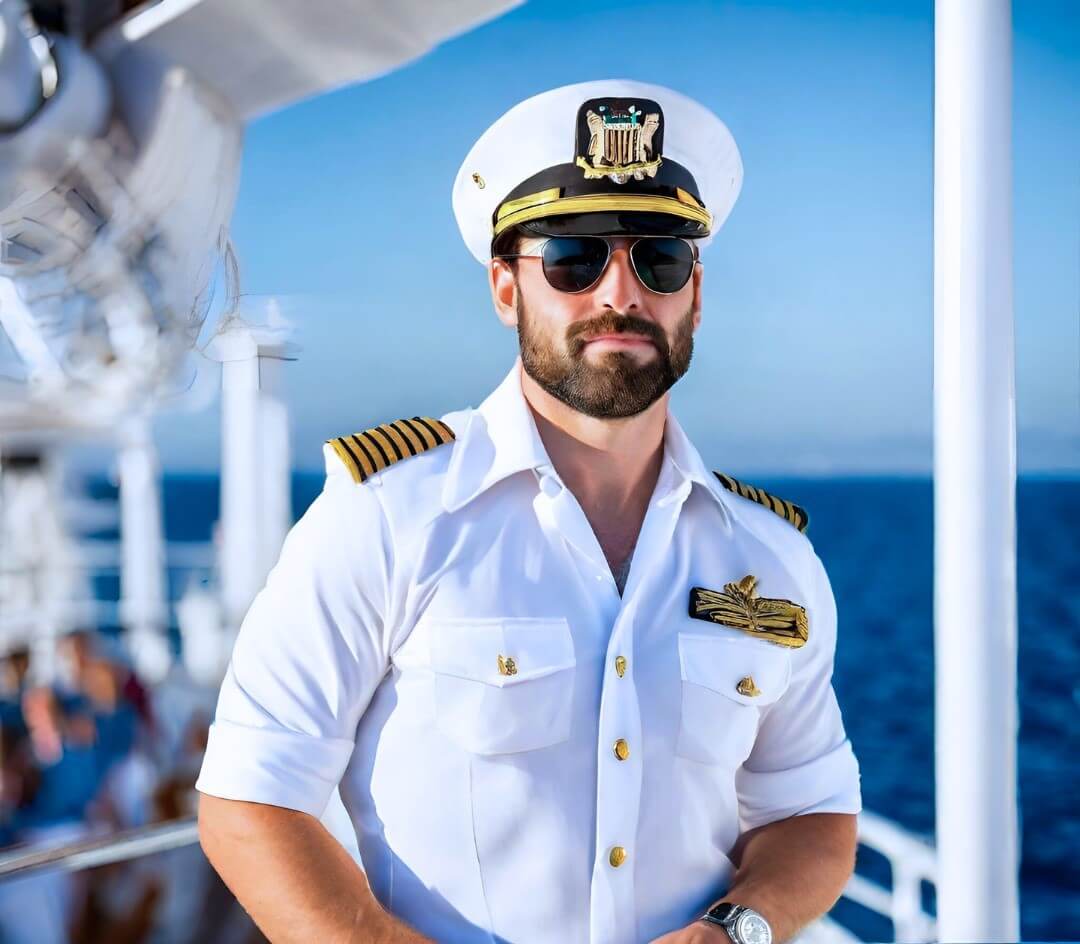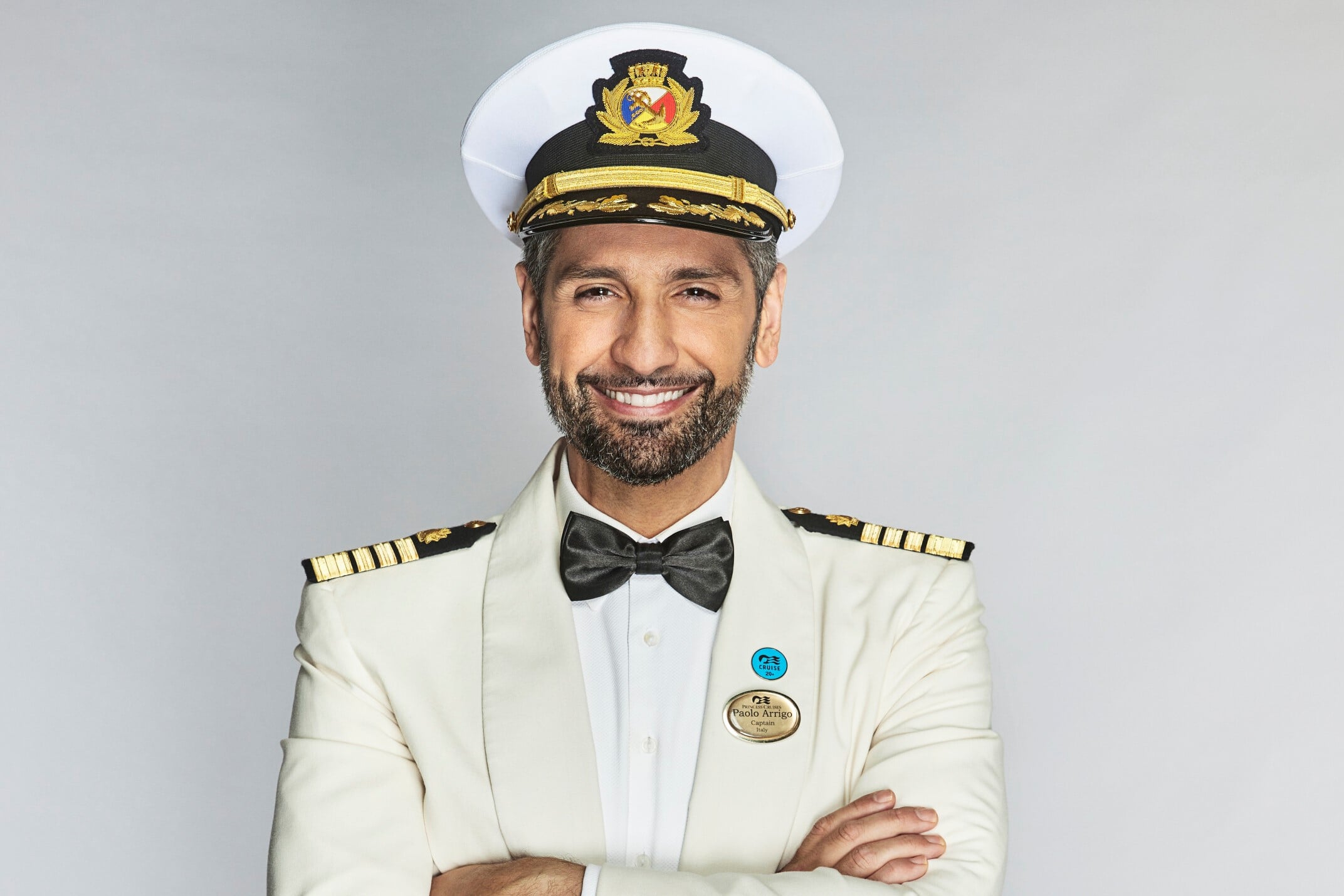When we think about grand ships, especially those from a bygone era, our thoughts often drift to the person at the very top, the one holding the ultimate say. This individual, a figure of significant authority and trust, is the captain. It's a title that carries immense weight, a kind of special standing that speaks to being in charge, especially when you consider a vessel as grand and as talked about as the Titanic. That person is really the one who takes on the biggest burdens, the most serious responsibilities, for everyone and everything on board, no matter what might happen.
You see, the word "captain" isn't just for those who sail the high seas, though that's certainly where many of us first hear it. It's actually a term that pops up in quite a few different places, always pointing to someone who is a leader, someone who directs others, or someone who simply holds the highest position within a particular group or operation. It's a badge of honor, in a way, for someone who has earned the right to guide and oversee.
So, what does it truly mean to be a captain, particularly when we bring in the idea of the Captain Titanic? What kind of tasks do they handle, and what sort of person steps into such a significant role? We're going to take a closer look at this important position, exploring its many facets and what it means to be the one in charge, especially on a ship that has left such a lasting impression on our collective memory.
- Gloria Torres Onlyfans Leaks
- Chatgpt Plus Subscription Iran Buy
- Teach Me First Honey Toon
- Teach Me First Ep 5
- Tv Shows With Renée Estevez
Table of Contents
- The Person Behind the Helm - Who Was the Captain Titanic?
- What Does It Mean to Be a Captain?
- The Weight of Command - What Responsibilities Does a Captain Hold?
- Beyond the Sea - Other Kinds of Captains
- The Legacy of a Captain - Especially for the Captain Titanic
- Final Thoughts on the Captain's Calling
The Person Behind the Helm - Who Was the Captain Titanic?
When people speak of the Captain Titanic, they are almost always referring to Edward John Smith, the person in charge of that famous ocean liner. He was, you know, a very experienced seafarer, someone who had spent many years at sea and had a reputation for being a rather steady hand. For a ship as grand as the Titanic, the owners picked someone with a long history of safe voyages, someone they felt truly capable of overseeing such a massive undertaking. His background really showed the kind of trust placed in a ship's chief officer.
He was, in a way, the very embodiment of what a commanding officer of a large passenger vessel should be. His career saw him at the helm of many significant ships before the Titanic, building up a long list of successful trips across the ocean. It's that kind of experience that makes someone the supreme leader of a vessel, someone whose word is the final one when out on the open waters. You could say he was the ultimate person in charge for that particular sailing.
| Detail | Information |
|---|---|
| Full Name | Edward John Smith |
| Birth Date | January 27, 1850 |
| Birthplace | Hanley, Staffordshire, England |
| Nationality | British |
| Years at Sea | Over 40 years |
| Shipping Line | White Star Line |
| Last Command | RMS Titanic |
What Does It Mean to Be a Captain?
The term "captain" points to a very specific kind of role, one that usually involves being the person with the most authority. It's a title, a way of addressing the individual who holds the top spot in a group or on a vehicle. Think of it like this: if there's a group of people working together, the captain is the one who leads them, the one who gives the instructions, and the one who has the final say on important decisions. They are, in essence, the ultimate decision-maker for their particular operation, more or less.
- Gloria Torres Only Fans
- Charlize Theron One Night Stand
- Chatgpt Plus Iran Payment Options
- Openai Chatgpt Plus Iran Purchase
- Carly Jane Topless
This meaning holds true whether you're talking about a big ship, an aircraft soaring through the sky, or even a vehicle traveling through space. The person in charge of these incredibly complex machines and the people on them is always called the captain. They are the person who is at the very head of things, the one with the most power to make things happen. It's a position that demands a lot of trust and a lot of ability, too it's almost.
Beyond just being in charge, a captain is also a symbol of leadership. They are the one who guides others, the one who makes sure everyone knows what they should be doing, and the one who keeps things running smoothly. This means they are responsible for overseeing the work of others and making sure that the overall mission or journey is successful. It's a big job, really, and it comes with a lot of weight on their shoulders.
Is a Captain Always on a Ship?
While we often picture a captain on a ship, the truth is that this important title stretches far beyond the ocean waves. A captain is, you know, a commanding officer of a military unit, someone who leads a body of troops. So, it's not just about boats; it can be about leading people on land as well, or even in the air. This shows how broad the idea of a captain really is, covering many different types of groups and settings.
For instance, in many places, especially in the United States, a captain can be a fairly senior person in a police department or a fire department. They are individuals who have worked their way up, earning a rank that puts them in charge of others, perhaps a specific district or a group of first responders. They are the ones who supervise and direct the work of those under them, making sure things run as they should, you know, for public safety.
And then there are captains in sports. The leader of a sports team is called a captain. This person is chosen to guide their teammates, to make important calls during a game, and to represent the team. They are the one who sets the tone and helps keep everyone focused on their shared goal. It's a different kind of command, certainly, but still about being at the head of a group, more or less.
Even in politics, you might find a district official for a political party called a captain, someone who helps organize efforts in a local area. And in restaurants, there's often a captain who is in charge of the waiters and usually attends to the tables, making sure diners have a good experience. So, the idea of a captain really shows up in a lot of unexpected places, all pointing to someone who is a supervisor or a director, that is that.
How Does Someone Become a Captain?
Becoming a captain, regardless of the field, generally involves a path of gaining experience, demonstrating strong leadership qualities, and earning a particular level of standing. For someone in the armed forces, it means reaching a commissioned rank, like being above a first lieutenant and below a major in the US Army, Air Force, or Marine Corps. It's about moving up the ladder, showing you can handle more and more responsibility, basically.
For those who guide ships or aircraft, it's a long process of training, learning the ins and outs of the vessel, and proving you can make sound decisions under pressure. They start out in lower positions and gradually work their way up, gaining certifications and building up many hours of practical experience. It’s a very demanding path, requiring a deep understanding of how things work and how to handle any situation that might come up, you know, at sea or in the air.
In other areas, like being a captain of a sports team, it might not be about formal ranks but about being chosen by your teammates or coach because of your influence, your ability to inspire, and your overall contribution to the group. It's about being someone who can command respect and guide others, someone who has a natural knack for leadership, really. So, the journey to becoming a captain is different for each area, but it always involves a significant amount of trust being placed in that person.
The Weight of Command - What Responsibilities Does a Captain Hold?
The responsibilities of a captain are, to put it mildly, quite extensive. As the person in charge, they are the ultimate authority for everything that happens under their watch. This means they are responsible for the safety of everyone on board, whether it's a ship full of passengers, a military unit, or a team of firefighters. They have to make sure that all rules are followed, that equipment is in good working order, and that their crew or team is performing as they should, you know, at all times.
A captain is someone who is designated to lead and take charge of a group of individuals. This isn't just about giving orders; it's about making sure those orders are carried out properly and that everyone understands their part. They are responsible for overseeing the daily operations, making sure tasks are completed, and handling any problems that pop up. This means they need to be someone who can think quickly and make firm choices, even when things get difficult, that is that.
They are the one who commands, leads, or guides others, especially in situations that require quick thinking and strong direction. Imagine being the one who has to make a split-second choice that could affect hundreds or thousands of lives. That's the kind of pressure a captain often deals with. They are the person who sets the tone, who ensures that everyone is working towards a common aim, and who ultimately bears the burden of any outcome, good or bad, very much so.
What is the Role of the Captain Titanic in a Crisis?
In a moment of serious trouble, the role of a captain, especially one like the Captain Titanic, becomes incredibly important. When something unexpected happens, the captain is the one who must remain calm and take swift action. Their job is to assess the situation, figure out the best course of action, and then give clear, firm instructions to everyone. They are the person who must lead the response, making sure that every effort is made to protect those under their care, really.
For a ship's captain, like the one on the Titanic, this means making decisions about how to handle damage, how to get people to safety, and how to communicate with others for help. They are the ones who give the order to abandon ship, if it comes to that, and they are expected to be the last to leave the vessel, if they leave at all. It's a tradition, a kind of unwritten rule, that speaks to the deep sense of responsibility they hold for their ship and its people, you know.
The commander of a unit or a body of troops, or the person in charge of a commercial aircraft, faces similar burdens in a difficult spot. Their authority is absolute in a crisis, because there's no time for debate or disagreement. Everyone looks to them for direction, for assurance, and for a way forward. It's a position that demands incredible fortitude and a clear head, even when everything around them might be falling apart, basically.
So, when we think about the Captain Titanic, we think about someone who was faced with an unimaginable challenge. Their role was to lead, to guide, and to make the most difficult choices possible, all while trying to keep order and ensure the best possible outcome for everyone on board. It's a heavy mantle, one that truly tests the limits of a person's character and their ability to command under the most extreme conditions, you know, at the end of the day.
Beyond the Sea - Other Kinds of Captains
As we've touched on, the title of captain isn't just for those who command ships or lead military groups. It's a term that describes anyone who is at the head of or in authority over others, in quite a few different settings. For instance, the person who supervises or directs the work of others in a variety of jobs might be called a captain, especially in certain fields. This shows how flexible the meaning of the word truly is, covering a range of leadership positions, in a way.
Consider the leader of a sports team, for example. This person is a captain, someone who guides their teammates, helps with strategy, and often acts as a go-between for the players and the coach. They are a key figure in keeping the team together and focused. Or think about a district official for a political party, who might be called a captain; they organize local efforts and rally support. These are all people who are in charge, who direct others, and who play a central role in their respective groups, you know.
Even in a restaurant, there's often a captain. This person is in charge of the waiters and usually attends to the tables, making sure that diners have a pleasant experience and that the service runs smoothly. They oversee the floor, making sure everything is just right. So, you can see that the idea of a captain is really about being a person of authority, someone who manages and guides, no matter the specific environment. It's a pretty versatile word, you know.
Can Anyone Be a Captain?
The question of whether just anyone can become a captain is an interesting one. While the title itself signifies a position of authority, it's also true that the qualities needed to truly embody the role are not something everyone possesses naturally. A captain, in any setting, needs to be someone who can command respect, someone who can make decisions, and someone who can inspire confidence in those they lead. These are traits that often take time and experience to develop, you know, over a long period.
Being a captain means being responsible for overseeing and guiding a group of individuals. This calls for a steady hand, a clear mind, and the ability to communicate effectively. Whether it's a ship, a sports team, or a police unit, the leader must be someone who can handle pressure and make tough calls when needed. It’s not just about having the rank; it’s about having the qualities that make you a good leader, that is that.
So, while the path to becoming a captain might differ from one field to another, the underlying requirement is always about leadership. It's about being a person who can be trusted to lead and take charge, someone who can guide others towards a shared goal, and someone who can handle the weight of ultimate responsibility. It's a role that demands a lot, and for good reason, really, given what's at stake.
The Legacy of a Captain - Especially for the Captain Titanic
The legacy of a captain, particularly for someone like the Captain Titanic, is something that lives on long after their time. For a ship's commander, their decisions, their actions, and their overall conduct become part of the story of that vessel. They are remembered for how they handled their duties, for the choices they made, and for the way they carried themselves in moments of both calm and great difficulty, you know.
The memory of Captain Edward Smith, the Captain Titanic, is deeply tied to the story of that ship. He represents the ultimate responsibility of a ship's leader, and his actions during the final hours of the Titanic have been discussed and examined for decades. His story, in a way, serves as a powerful reminder of the immense burdens and the profound trust placed in those who hold such a commanding position, basically.
The idea of a captain, whether on a ship, in a military unit, or leading a team, is about more than just a title. It's about the character of the person who wears that title, about their ability to command, to lead, and to guide others, especially when things get tough. Their legacy is often defined by how well they fulfilled that trust, how they handled the authority given to them, and how they faced the challenges that came their way, you know, as a matter of fact.
Final Thoughts on the Captain's Calling
The role of a captain, from the person in charge of a massive ocean liner like the Captain Titanic to the leader of a local sports team, is a truly significant one. It's a position that comes with immense responsibility, requiring a person to command, to guide, and to make important decisions for the well-being of others. This title is, in some respects, a symbol of ultimate authority and trust, pointing to someone who is at the very head of an operation, that is that. The expectations placed upon a captain are incredibly high, reflecting the crucial nature of their duties across many different kinds of groups and settings.
- Mona Azar Age
- Chatgpt Plus Subscription Iran Buy
- How To Subscribe Chatgpt Plus From Iran Payment
- Openai Chatgpt Plus Iran Payment Options
- Buy Chatgpt Plus Subscription Iran



